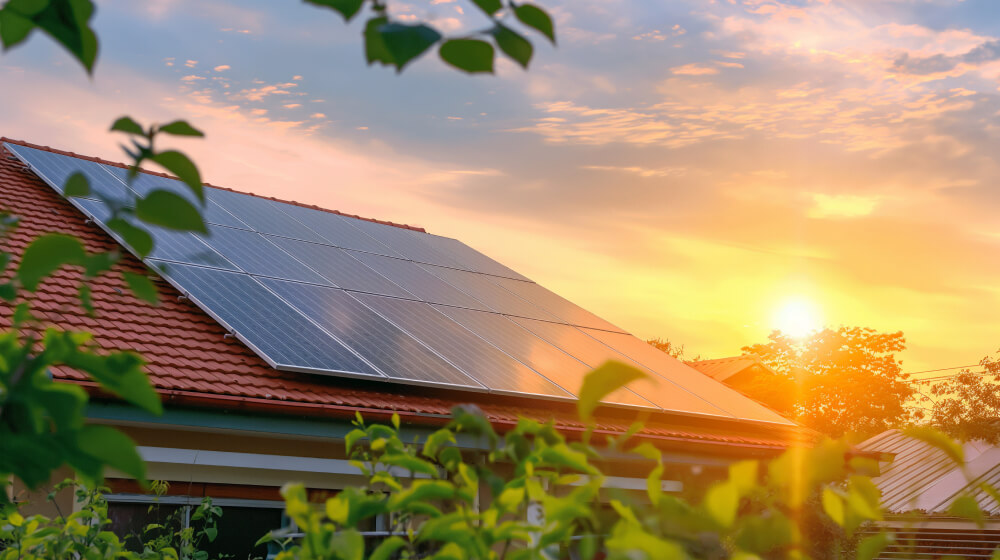What is Solar Panel Efficiency?
Solar panel efficiency refers to the portion of sunlight that a solar panel can convert into electrical energy. It is expressed as a percentage. For example, a solar panel with an efficiency rating of 20% converts 20% of the sunlight it receives into electricity. Higher efficiency panels generate more electricity from the same amount of sunlight compared to lower efficiency panels.
Factors Affecting Solar Panel Efficiency
- Material Quality: The materials used in the construction of solar panels significantly affect their efficiency. High-quality materials, such as monocrystalline silicon, typically offer better performance than lower-grade materials like polycrystalline silicon.
- Temperature: Solar panels are sensitive to temperature. As temperatures rise, the efficiency of solar panels generally decreases. This phenomenon is known as the temperature coefficient. Panels with a lower temperature coefficient perform better in hot climates.
- Angle and Orientation: The angle and orientation of solar panels relative to the sun’s position play a crucial role in their efficiency. Panels should be positioned to capture the maximum amount of sunlight throughout the day. In the Northern Hemisphere, this usually means facing the panels south at an angle that corresponds to the latitude of the location.
- Shading: Even partial shading can significantly reduce the efficiency of solar panels. Shadows cast by trees, buildings, or other obstructions can block sunlight, reducing the amount of electricity generated.
- Dirt and Debris: Accumulation of dirt, dust, and debris on the surface of solar panels can block sunlight and reduce efficiency. Regular cleaning and maintenance are essential to ensure optimal performance.
- Age of Panels: Over time, solar panels experience a decrease in efficiency due to wear and tear. Most manufacturers provide a degradation rate, indicating how much efficiency loss to expect annually.
Join HICP Homeowner’s Alliance
Connect with experts, get special discounts and enjoy member benefits
Types of Solar Panels
- Monocrystalline Solar Panels: These panels are made from a single continuous crystal structure. They are known for their high efficiency and sleek appearance. Monocrystalline panels typically offer efficiency ratings between 15% and 20%, making them one of the most efficient options available.
- Polycrystalline Solar Panels: Made from multiple silicon crystals, polycrystalline panels are generally less efficient than monocrystalline panels, with efficiency ratings ranging from 13% to 16%. However, they are more affordable and still provide a good return on investment.
- Thin-Film Solar Panels: These panels are made by depositing thin layers of photovoltaic material onto a substrate. They are lightweight and flexible, making them suitable for unconventional applications. Thin-film panels typically have lower efficiency ratings (around 10% to 12%) but can perform better in low-light conditions.
Practical Tips for Homeowners
- Choose the Right Type of Panel: Consider your budget, space constraints, and energy needs when selecting a type of solar panel. Monocrystalline panels are ideal for those with limited roof space and a higher budget, while polycrystalline panels offer a balance between cost and efficiency.
- Optimize Panel Placement: Work with a professional installer to determine the best placement for your panels. Ensure they are positioned at the optimal angle and orientation to capture the most sunlight throughout the day.
- Regular Maintenance: Schedule regular inspections and cleanings to remove any dirt or debris that might accumulate on your panels. This will help maintain their efficiency and prolong their lifespan.
- Monitor Performance: Invest in a solar monitoring system to keep track of your panels’ performance. This will allow you to detect any issues early and take corrective action to ensure maximum efficiency.
- Consider Micro-Inverters or Power Optimizers: Micro-inverters and power optimizers can improve the efficiency of your solar system by optimizing the performance of individual panels, particularly in installations where shading is unavoidable.
- Invest in High-Quality Components: Using high-quality inverters, mounts, and wiring can enhance the overall efficiency and reliability of your solar energy system.
- Plan for Expansion: If you anticipate increasing your energy consumption in the future, plan your solar installation with expansion in mind. This might include leaving space for additional panels or upgrading your inverter capacity.
- Take Advantage of Incentives: Utilize available tax credits, rebates, and other incentives to offset the initial cost of your solar installation. These financial benefits can make investing in higher-efficiency panels more affordable.
Understanding solar panel efficiency is essential for homeowners looking to invest in solar energy. By considering factors such as material quality, temperature, shading, and maintenance, you can optimize the performance of your solar panels and maximize your return on investment. Whether you choose monocrystalline, polycrystalline, or thin-film panels, proper installation and regular upkeep are key to ensuring long-term efficiency and energy savings.
By educating yourself on these aspects and making informed decisions, you can harness the power of the sun to reduce your energy bills and contribute to a more sustainable future.








